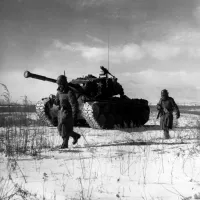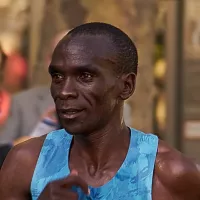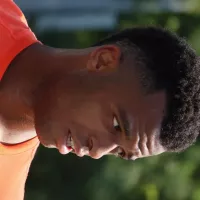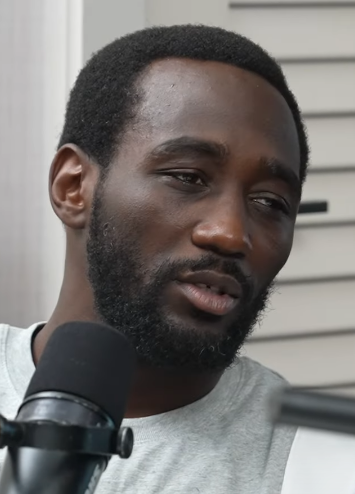The Boston Marathon is an annual marathon race held in greater Boston, Massachusetts, traditionally on Patriots' Day (the third Monday of April). Inspired by the 1896 Summer Olympics marathon, it began in 1897, making it the world's oldest annual marathon. It is also recognized as one of the world's most prestigious road racing events and is one of the seven World Marathon Majors. The course spans from Hopkinton to Copley Square in Boston.
1903: Red Sox Game and Marathon Tradition Started
In 1903, the tradition of the Boston Red Sox playing a home game at Fenway Park, starting at 11:05 a.m., and the crowd emptying into Kenmore Square to cheer for the runners began.
1905: Death of James Edward Brooks
In 1905, James Edward Brooks of North Adams, Massachusetts, died of pneumonia shortly after running the marathon.
1908: Course Lengthened
In 1908, the Boston Marathon course was lengthened to 26 miles 385 yards to conform to the standard set by the 1908 Summer Olympics.
1921: IAAF Codified Standard
In 1921, the IAAF codified the 26 miles 385 yards standard set by the 1908 Summer Olympics.
1924: Starting line moved
In 1924, the starting line of the Boston Marathon was moved from Metcalf's Mill in Ashland to Hopkinton.
1936: Kelley and Brown's Race
In 1936, on Heartbreak Hill, defending champion John A. "Johnny" Kelley overtook Ellison "Tarzan" Brown, patting him on the shoulder. This spurred Brown to rally and win, breaking Kelley's heart.
1941: Walter A. Brown becomes President of the BAA
In 1941, Walter A. Brown became the President of the Boston Athletic Association.
1947: Suh Yun-Bok Sets Men's World Record
In 1947, Suh Yun-Bok of South Korea set the men's world record time for marathon running in Boston, with a time of 2:25:39.
1951: Korean Entries Denied
In 1951, during the Korean War, Walter A. Brown, the President of the Boston Athletic Association, denied Koreans entry into the Boston Marathon.
1964: Walter A. Brown leaves the BAA presidency
In 1964, Walter A. Brown stepped down from his role as the President of the Boston Athletic Association.
1966: Bobbi Gibb grand marshal
Bobbi Gibb, the first woman to have run the entire Boston Marathon (1966), was the grand marshal of the 2016 race.
1966: Roberta Gibb runs unregistered
In 1966, Roberta "Bobbi" Gibb ran the Boston Marathon unregistered and finished the race in three hours, twenty-one minutes and forty seconds, ahead of two-thirds of the runners.
1966: Retroactive Recognition of Women Leaders
In 1996, the B.A.A. retroactively recognized as champions the unofficial women's leaders of 1966 through 1971.
1967: Kathrine Switzer runs with official registration
In 1967, Kathrine Switzer was the first woman to run and finish the Boston Marathon with a valid official race registration.
1967: Rule book mention of gender
In 1967, the Boston Marathon rule book made no mention of gender until after the 1967 race.
1969: Holiday Observed on Third Monday
From 1969, the holiday was observed on the third Monday in April, and so the marathon date was correspondingly fixed to that Monday, often referred to by local residents as "Marathon Monday".
1971: Retroactive Recognition of Women Leaders
In 1996, the B.A.A. retroactively recognized as champions the unofficial women's leaders of 1966 through 1971.
1971: Influence on the Amateur Athletic Union
In late 1971, Nina Kuscsik was instrumental in influencing the Amateur Athletic Union to increase its maximum distance for sanctioned women's races, leading to official participation by women in marathons, beginning at Boston.
1972: Kuscsik First Official Woman Winner
In 1972, Nina Kuscsik was the first woman to officially win the Boston Marathon.
1975: Wheelchair Division Introduced
In 1975, the Boston Marathon became the first major marathon to include a wheelchair division competition after Bob Hall's successful participation.
1975: Women's Masters Division Included
In 1975, the Boston Marathon first included a women's masters division, which Sylvia Weiner won, at age 44 with a time of 3:21:38.
1975: Ondekoza Tradition Begins
Starting in 1975, members of Ondekoza, a group from Japan, would run the marathon and right after finishing the race would start playing their taiko drums at the finish line.
1980: Rosie Ruiz Disqualified
In 1980, Rosie Ruiz was disqualified after it was discovered that she skipped most of the race and falsely claimed victory.
1983: Joan Benoit Samuelson Sets Women's World Record
In 1983, Joan Benoit Samuelson of the United States ran a women's world record time of 2:22:43 at the Boston Marathon.
1986: First Cash Prize Awarded
In 1986, the first cash prize was awarded for winning the Boston Marathon.
1986: Prize Money Introduced for Wheelchair Division
In 1986, the introduction of prize money at the Boston Marathon gave the push rim wheelchair division the richest prize purse in the sport.
1988: DMSE Sports manages the race
Since 1988, DMSE Sports has been managing the Boston Marathon race.
1990: Ondekoza's US Run
From 1990 to 1993, Ondekoza ran 10,000 miles of the perimeter of the United States.
1993: Ondekoza's US Run
From 1990 to 1993, Ondekoza ran 10,000 miles of the perimeter of the United States.
1996: 100th Running Costumes
During the 100th running in 1996, one runner wore a scale model of the Old North Church steeple on his back.
1996: Death of Humphrey Siesage
In 1996, Humphrey Siesage, a 61-year-old Swedish man, died of a heart attack during the 100th running of the Boston Marathon.
1996: Retroactive Recognition of Women Leaders
In 1996, the B.A.A. retroactively recognized as champions the unofficial women's leaders of 1966 through 1971.
1996: Centennial Boston Marathon
In 1996, the Centennial Boston Marathon set a record as the world's largest marathon with 38,708 entrants, 36,748 starters, and 35,868 finishers.
2002: Death of Cynthia Lucero
In 2002, Cynthia Lucero, 28, died of hyponatremia after participating in the Boston Marathon.
2002: Okayo ran a time
Margaret Okayo ran a time of 2:20:43 in 2002.
2004: Ernst Van Dyk Sets Course Record
In 2004, Ernst Van Dyk set a wheelchair division course record at 1:18.29.
2005: Race Start Time
Through 2005, the race began at noon (wheelchair race at 11:25 a.m., and elite women at 11:31 a.m.), at the official starting point in Hopkinton, Massachusetts.
2006: Wave Start Introduced
In 2006, the race used a staggered "wave start", where top-seeded runners and a first batch of up to 10,000 runners started at noon, with a second group starting at 12:30.
2007: Sunita Williams Runs Marathon in Space
In 2007, astronaut Sunita Williams ran a marathon distance while on the International Space Station, becoming the first person to run a marathon in space. She received a bib and medal from the B.A.A. on the Space Shuttle Atlantis.
2007: Red Sox Game Delayed
In 2007, the game between the Red Sox and the Los Angeles Angels of Anaheim was delayed until 12:18 p.m. due to heavy rain, but the marathon proceeded as scheduled.
August 2008: Team Hoyt's Achievements
By August 2008, "Team Hoyt" (Dick and Rick) had competed in 66 marathons and 229 triathlons.
October 18, 2010: Record-Setting Registration
On October 18, 2010, the 20,000 spots reserved for qualifiers were filled in a record eight hours and three minutes, highlighting the marathon's popularity and demand.
2010: Partner entries awarded
In 2010, about 5,470 additional runners received entries through partners, including 2,515 charity runners.
February 15, 2011: Qualifying standards tightened
On February 15, 2011, qualifying standards for the 2013 race were tightened by five minutes in each age-gender group for marathons run after September 23, 2011.
April 18, 2011: Geoffrey Mutai wins 2011 Boston Marathon
On April 18, 2011, Geoffrey Mutai of Kenya won the 2011 Boston Marathon in a time of 2:03:02:00, the fastest marathon ever run at the time, but not eligible for world record status.
September 23, 2011: Stricter qualifying times
Marathons run after September 23, 2011, saw stricter qualifying times put in place. Prospective runners in the age range of 18–34 must run a time of no more than 3:00:00 if male, or 3:30:00 if female.
2012: Joshua Cassidy Sets Wheelchair World Record
In 2012, Joshua Cassidy of Canada set a men's wheelchair marathon world-record time of 1:18:25.
2012: Team Hoyt's 30th Boston Marathon
In 2012, Team Hoyt completed their 30th Boston Marathon, with Dick at 72 and Rick at 50.
April 15, 2013: Boston Marathon Bombing
On April 15, 2013, two bombs were set off near the finish line of the Boston Marathon, killing three spectators and injuring an estimated 264 people. The race was halted.
2013: Security Reasons
Following the 2013 bombing, runners and spectators were discouraged from wearing "costumes covering the face or any non-form fitting, bulky outfits extending beyond the perimeter of the body," for security reasons
2013: Team Hoyt Stopped Short
In 2013, Team Hoyt intended to complete their final Boston Marathon, but were stopped a mile short due to the bombing, leading them to run one more marathon.
2013: New qualifying standards in effect
In 2013, new qualifying standards were put in place.
April 21, 2014: Bezunesh Deba Sets Women's Course Record
On April 21, 2014, Bezunesh Deba from Ethiopia set the women's course record with a time of 2:19:59, declared after Rita Jeptoo's disqualification due to doping.
2014: Costume Restrictions
During the 2014 marathon, runners and spectators were discouraged from wearing "costumes covering the face or any non-form fitting, bulky outfits extending beyond the perimeter of the body," for security reasons following the 2013 bombing.
2014: Discouraging Bandits
Given the increased field that was expected for the 2014 Marathon, organizers planned "more than ever" to discourage bandits from running.
2014: Deba named winner
In 2014, Bizunesh Deba of Ethiopia was named the women's winner of the Boston Marathon after the disqualification of Rita Jeptoo due to doping.
2014: Automatic entry for those affected
In 2014, entrants who completed at least half the course and did not finish due to the 2013 bombing were given automatic entry.
2014: Handcyclists Competed
Since at least 2014, handcyclists have competed in the race.
September 2015: B.A.A. Website Statement
As of September 2015 the B.A.A. website states the Boston Athletic Association does not support the practice of participating in the Boston Marathon without proper registration.
2015: Tsarnaev found guilty
In 2015, Dzhokhar Tsarnaev, one of the perpetrators of the 2013 Boston Marathon bombing, was found guilty of 30 federal offenses and was sentenced to death.
2015: Dick Hoyt Named Grand Marshal
In 2015, in tribute to his connection with the race, Dick Hoyt was named the Grand Marshal of the marathon.
2016: First female double amputee
In the 2016 Boston Marathon, Jami Marseilles became the first female double amputee to finish the race.
2017: Gibb to return trophy
In 2016, the Women's Open division winner, Atsede Baysa, gave Bobbi Gibb her trophy; Gibb said that she would go to Baysa's native Ethiopia in 2017 and return it to her.
2017: Charity runners raise $34.2 million
In 2017, charity runners raised $34.2 million for more than 200 non-profit organizations.
2017: Handcyclists Honored
Starting in 2017, handcyclists are honored with wreaths, prize money, and the playing of the winners' national anthems, similar to runners and wheelchair racers.
September 27, 2018: Lowered Qualifying Times Announced
On September 27, 2018, the B.A.A. announced lowered qualifying times for the 2020 marathon by five minutes. Male runners (18-34) now need a time of 3:00:00 or less, and female runners (18-34) need 3:30:00 or less to qualify.
2018: Mutai's Record Surpassed
In 2018, Eliud Kipchoge surpassed Geoffrey Mutai's record of 2:03:02, with 2:01:39 in Berlin.
2018: Red Sox Game Postponed
In 2018, the Red Sox game hosting the Baltimore Orioles was postponed into May due to rain.
2019: Holiday Observed on Third Monday
Until 2019, the holiday was observed on the third Monday in April, and so the marathon date was correspondingly fixed to that Monday, often referred to by local residents as "Marathon Monday".
May 28, 2020: 2020 Boston Marathon canceled
On May 28, 2020, the Boston Marathon set for September 14 was canceled due to the COVID-19 pandemic. The decision was announced by Boston Mayor Marty Walsh.
September 2020: Virtual alternative marathon
In September 2020, a "virtual alternative" was staged as the 124th running of the Boston Marathon, after the in-person race was canceled.
October 28, 2020: 2021 edition would not be held in April
On October 28, 2020, the B.A.A. announced that the 2021 edition of the marathon would not be held in April.
2020: 2020 Boston Marathon postponed
Due to the COVID-19 pandemic, the 2020 Boston Marathon was initially rescheduled from April 20 to September 14.
2020: Virtual Alternative
In 2020, due to the COVID-19 pandemic, the road race was canceled, and a "virtual alternative" was held.
2020: Red Sox Game Not Played
In 2020, the Red Sox game was not played due to the pandemic.
2020: Lowered Qualifying Times
In 2020, the qualifying times were lowered by five minutes: male runners (18-34) needed a time of 3:00:00 or less, and female runners (18-34) needed 3:30:00 or less to qualify.
2020: Oldest continuously running marathon until 2020
Until 2020, the Boston Marathon was the oldest continuously running marathon.
January 2021: October 11 set as marathon date
In late January 2021, organizers announced October 11 as the date for the Boston Marathon, contingent upon road races being allowed in Massachusetts at that time.
2021: Death of Dick Hoyt
Dick Hoyt, the father of Rick Hoyt, passed away in 2021 at the age of 80.
2022: 43 percent of entrants were women
In 2022, about 43 percent of the entrants in the Boston Marathon were women.
May 2023: Death of Rick Hoyt
Rick Hoyt, known for competing in marathons alongside his father Dick as "Team Hoyt", passed away in May 2023.
2023: Nonbinary Division First Included
In 2023, the nonbinary division of the Boston Marathon was first included, and it was won by Kae Ravichandran with a time of 2:38:57.
September 2024: New Qualifying Times Announced for 2026 Race
In September 2024, the B.A.A. announced new qualifying times for the 2026 race, lowering the former qualifying times by five minutes for most age groups. The 18-34 age group needs to run a time of 2:55 for males, and 3:25 for female and non-binary runners to qualify for the 2026 race.
2026: Implementation of New Qualifying Times
In 2026, new qualifying times were implemented, requiring the 18-34 age group to run a time of 2:55 for males, and 3:25 for female and non-binary runners.
Mentioned in this timeline
Germany officially the Federal Republic of Germany is a nation...

The Korean War - was a conflict between North Korea...

Los Angeles is the most populous city in California and...
Korea is a peninsular region in East Asia comprised of...

Eliud Kipchoge is a celebrated Kenyan long-distance runner renowned for...
Canada is a North American country the second largest in...
Trending

37 minutes ago Mpetshi Perricard tries Dehaes after Planque split, Dubai & Doha comments.

38 minutes ago Otto Virtanen Gears Up for Dubai 2026: Match Analysis and Fan Commentary

38 minutes ago Choinski Qualifies for Doha, Faces Mensik in ATP Qatar Open 2026

3 hours ago Terence Crawford's son triumphs, securing Nebraska state wrestling title: A proud moment.

2 hours ago Devin Haney superfight obstacles, Ryan Garcia's message, and rematch avoidance claims surface.

3 hours ago Gervonta Davis targeted for world title fight amidst controversy and hit list mentions.
Popular

Jesse Jackson is an American civil rights activist politician and...

Barack Obama the th U S President - was the...

Bernie Sanders is a prominent American politician currently serving as...

Ken Paxton is an American politician and lawyer serving as...

Michael Joseph Jackson the King of Pop was a highly...
WWE Raw a professional wrestling television program by WWE airs...